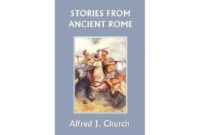Mythical god names, an enchanting tapestry of words woven from history, culture, and imagination, beckon us into a realm of gods and goddesses, each name a portal to a world of power, mystery, and profound meaning. From ancient Sumerian deities to the celestial pantheon of Greek mythology, these names echo through time, shaping our understanding of the divine and leaving an enduring legacy on human civilization.
In this comprehensive exploration, we delve into the origins and etymology of mythical god names, uncovering the fascinating stories behind their creation. We explore their symbolic meanings and associations, revealing the values, beliefs, and fears of the cultures that gave birth to these divine figures.
We classify and organize these names, creating a framework for understanding the roles and domains of these celestial beings.
Mythical God Names

The names of mythical gods and goddesses have a rich and varied history, influenced by the cultures and languages of different civilizations. These names often reflect the beliefs, values, and imaginations of the people who created them.
Etymological Roots
Many mythical god names have etymological roots in ancient languages, such as Greek, Latin, and Sanskrit. For example, the Greek god Zeus is derived from the Proto-Indo-European word -dyeus, meaning “sky” or “day.” The Roman god Jupiter is derived from the same root, via the Latin word Iuppiter.
The names of mythical gods and goddesses often inspire awe and wonder. While visiting the Eternal City, be sure to explore the many attractions that pay homage to these legendary figures. From the majestic Colosseum, where gladiators fought for the favor of Mars, to the Pantheon, dedicated to all the gods, Rome is a treasure trove of ancient history and mythology.
And don’t forget to visit the Vatican Museums, where you can admire masterpieces depicting scenes from Greek and Roman myths, such as the iconic “Laocoön and His Sons.” Whether you’re a history buff or simply appreciate the beauty of art and architecture, exploring the attractions to see in Rome attractions to see in rome is sure to leave you with a lasting impression of the enduring power of mythical god names.
The Sanskrit god Indra is also derived from the same root, via the Proto-Indo-Iranian word -indra.
Other mythical god names have origins in more obscure languages or cultures. For example, the Egyptian god Amun is derived from the ancient Egyptian word ymn, meaning “hidden.” The Mayan god Kukulkán is derived from the Mayan word k’uk’ulkan, meaning “feathered serpent.”
Symbolism and Meaning of Mythical God Names
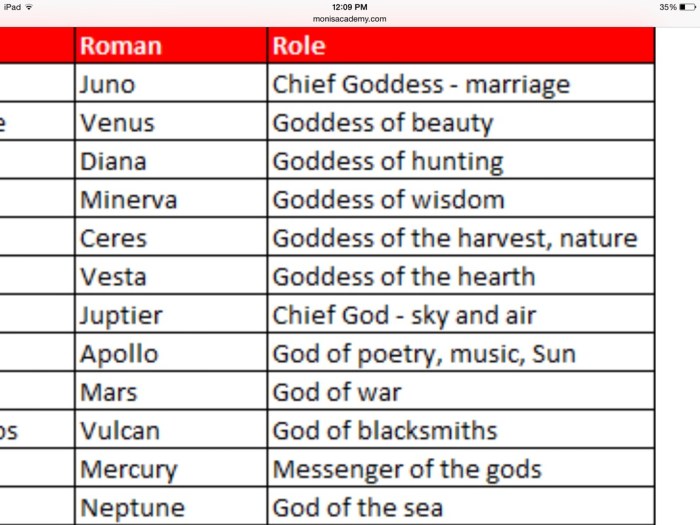
The names of mythical gods and goddesses often carry deep symbolic meanings and associations, reflecting the values, beliefs, and fears of the cultures that created them. By exploring the etymology, mythology, and cultural context of these names, we can gain insights into the fundamental nature of the divine in human imagination.
From the ethereal realms of mythical god names to the bustling hub of fiumicino airport , the tapestry of language weaves a vibrant connection. As travelers embark on their journeys through the celestial expanse, they may find solace in invoking the names of ancient deities, while the airport’s own name, Fiumicino, echoes the mythological river god of the Tiber, connecting the mortal and the divine in a timeless embrace.
Patterns and common themes emerge across different mythologies, revealing universal archetypes and shared human experiences. For example, many gods and goddesses are named after natural phenomena, such as Zeus (Greek god of the sky) or Poseidon (Greek god of the sea), reflecting the importance of these forces in shaping human lives.
Names Reflecting Values and Beliefs
- Gods and goddesses often embody specific virtues or ideals, such as Athena (Greek goddess of wisdom and war) or Ra (Egyptian god of the sun and order).
- Their names reflect the values and aspirations of the society that created them, providing insights into their moral compass and ethical beliefs.
Classification and Organization of Mythical God Names
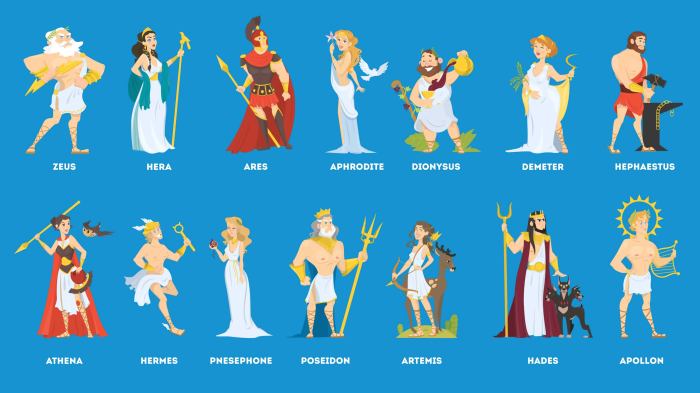
Mythical god names can be classified and organized based on various criteria, such as their roles, domains, or other relevant attributes. This classification helps us understand the diverse nature of these deities and their significance within different mythologies.
One common method of classification is based on the gods’ roles and responsibilities. For instance, in Greek mythology, Zeus is the god of the sky and thunder, while Poseidon is the god of the sea and earthquakes. Similarly, in Norse mythology, Odin is the god of wisdom and war, and Thor is the god of thunder and lightning.
Classification by Domain
Another way to organize mythical god names is based on their domains or areas of influence. For example, in Egyptian mythology, Ra is the god of the sun, while Osiris is the god of the underworld. In Roman mythology, Jupiter is the god of the sky and thunder, while Neptune is the god of the sea.
This classification helps us understand the scope and power of these deities.
Significance of Classification
Classifying and organizing mythical god names is significant for several reasons. First, it provides a framework for understanding the diverse nature of these deities and their roles within different mythologies. By categorizing gods based on their functions or domains, we can identify patterns and similarities across different cultures.
Second, this classification helps us appreciate the cultural and historical context of these myths. The names and attributes of gods often reflect the beliefs, values, and experiences of the people who created them. By understanding the classification of god names, we gain insights into the societies that gave rise to these myths.
Cultural Impact and Influence of Mythical God Names
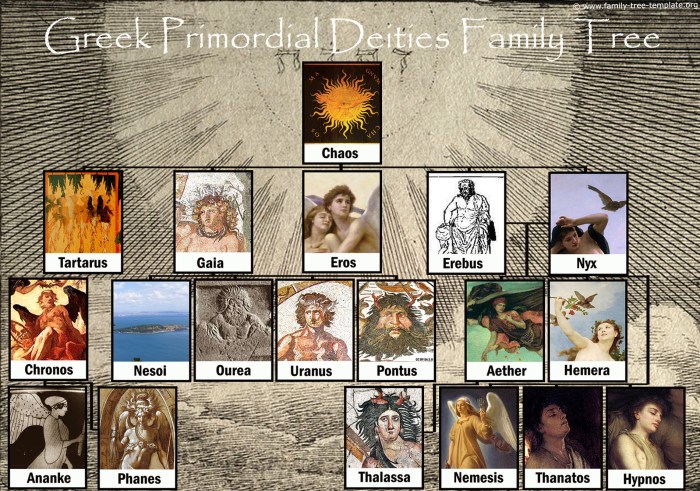
Mythical god names have had a profound impact on human culture and imagination, shaping literature, art, music, and other creative forms for centuries. These names have become symbols of power, wisdom, beauty, and other divine attributes, inspiring countless works of art and storytelling.
In Literature
Mythical god names have been used extensively in literature to create characters, settings, and themes. For example, in Greek mythology, the name “Zeus” evokes images of thunder, lightning, and divine authority, while “Athena” represents wisdom, strategy, and warfare. These names have been used in countless works of literature, from ancient epics to modern novels, to create memorable and relatable characters.
In Art
Mythical god names have also been a source of inspiration for artists throughout history. Paintings, sculptures, and other works of art often depict scenes from mythology, featuring gods and goddesses with their iconic names. For example, Michelangelo’s famous statue of David is based on the biblical story of David and Goliath, and the name “David” has become synonymous with courage and strength in art.
In Music
Mythical god names have also found their way into music. Composers have used these names to create powerful and evocative pieces of music. For example, Handel’s oratorio “Messiah” features the name “Jesus Christ” as a central theme, and Beethoven’s Ninth Symphony includes a chorus that sings the name “Zeus” in a powerful and majestic manner.
Enduring Legacy, Mythical god names
The cultural impact of mythical god names is undeniable. These names have become deeply embedded in human consciousness, representing our hopes, fears, and aspirations. They continue to inspire and influence creative works of all kinds, ensuring their enduring legacy in human culture.
Final Wrap-Up
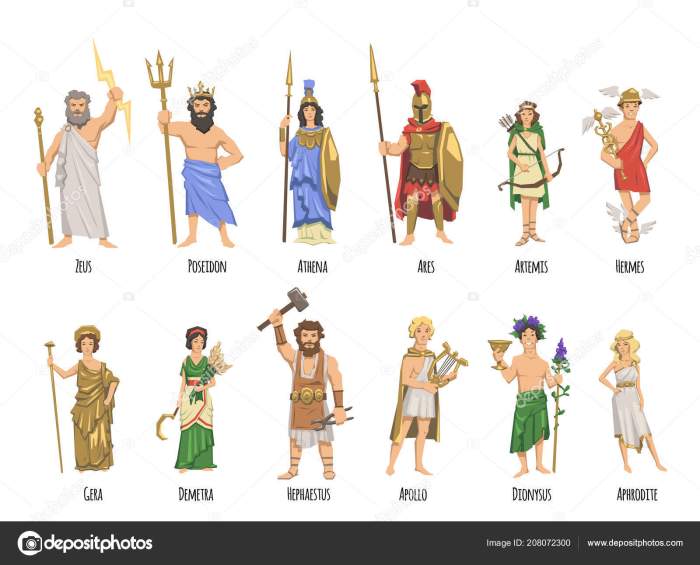
Mythical god names, far from being mere labels, are vibrant threads in the fabric of human culture. They have inspired countless works of literature, art, and music, shaping our collective imagination and providing a glimpse into the boundless realms of the divine.
Their enduring legacy reminds us of the power of storytelling, the universality of human experience, and the enduring fascination with the mysteries of the cosmos.

